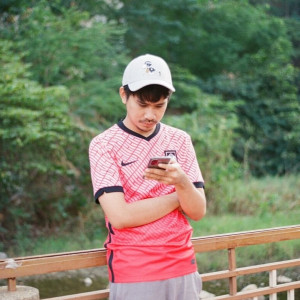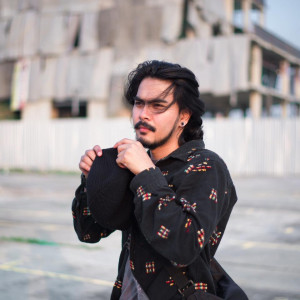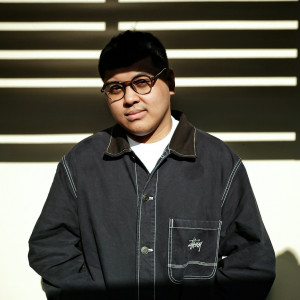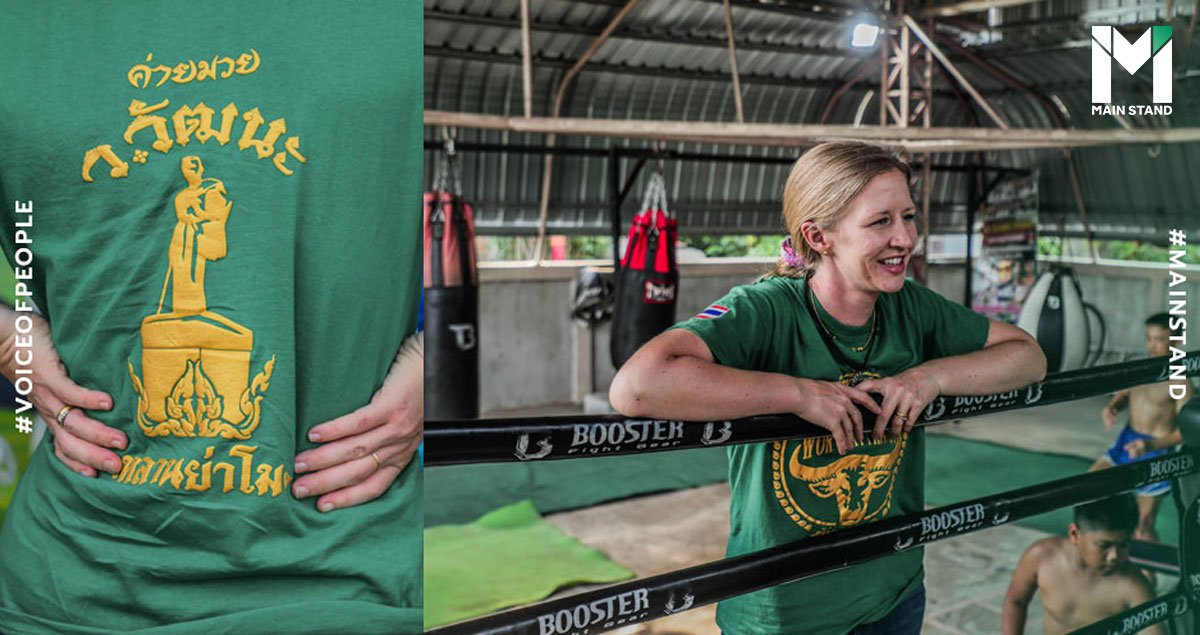
No one doubts the popularity of Muay Thai internationally. Numerous visitors come to Thailand to train in the sport, with many of them becoming successful professional fighters, earning cash and countless trophies.
However, not many people would leave their country behind to live in a far-flung rural town and open a Muay Thai camp for local kids. But that’s precisely what Mali Wattanaya, the Canadian who has devoted the last decade of her life to Muay Thai, has done.
The Wor Wattana Muay Thai Camp sits in a small village, more than 140 Kilometers away from the city of Nakhon Ratchasima. One must travel uphill through several dirt roads to reach it, and it lacks many facilities we might be used to.
Despite its humble surroundings, Wor Wattana Muay Thai Camp still stands firm in its ambition of teaching Muay Thai to the children in the community for free, thanks to one woman’s blood, sweat, and tears.
Main Stand would like to introduce you to Mali Wattanaya, a Canadian who has devoted her life to Muay Thai for more than 10 years, without expecting anything in return except smiles from her beloved local kids.
Flying to find Muay Thai
Mali grew up in a small town in British Columbia, Canada. She was always an energetic kid and fell in love with boxing when she was young. When she was 14 years old, she was introduced to Muay Thai, a martial art originating on the other side of the world.
“At first, I wanted to learn boxing, but I had one friend who was learning Muay Thai with a foreign trainer in Canada. I didn’t know Muay Thai, and I’d never heard of this sport before, but after my first training session, I loved it. It made me think only about fighting and becoming a pro”
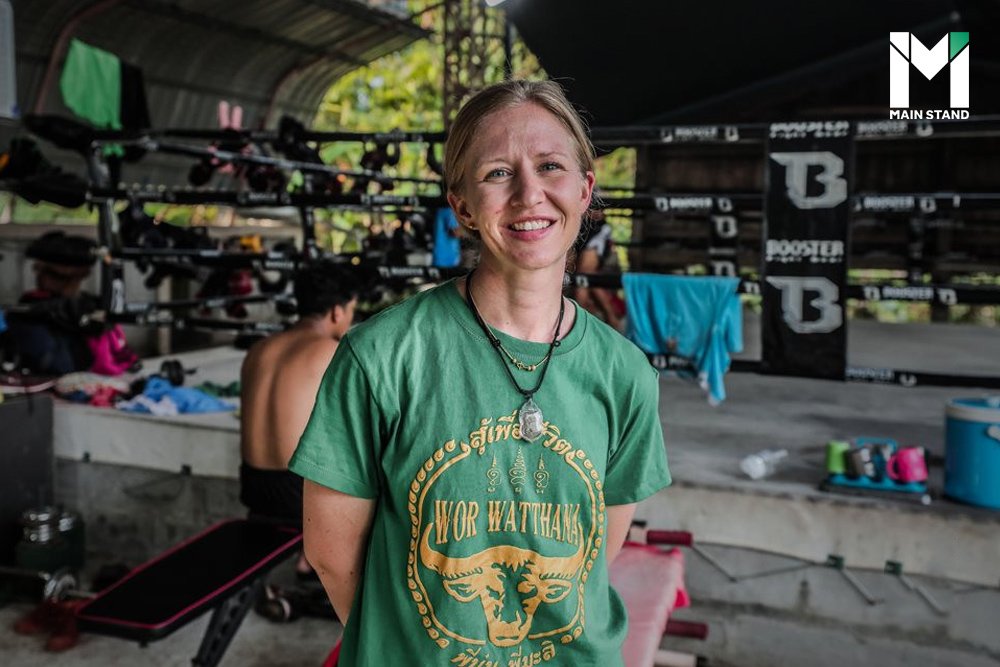
Fascinated by the “Art of Eight Limbs”, Mali made visiting Thailand her goal. During that time, she was boxing around across North America while working part-time jobs to save up money for her trip.
“My parents didn’t give me anything. After I finished high school, I decided to work for a year. I worked during the day and trained during the night because I was intent on coming to Thailand.”
Having been through many difficulties and hardships since she was young, going abroad and living alone wasn’t too daunting a prospect for her. At 19 years old, she was ready to risk leaving everything behind to set off on her desired path.
“(After arriving in Thailand), somebody took me to a Muay Thai camp in Sukhumvit Soi 93, which is now out of business. When I went there, the camp had just opened so its condition wasn’t great, but we lived together like a family. All the trainers and boxers were very close.”
“I earned money by fighting in the ring. I fought a lot, mostly in Bangkok and in the South. They gave a high rate in the South, which is why my boss sent me there, meanwhile, Bangkok was obviously nearby so it didn’t cost a lot.”
“I got the highest paid rate when I was in the South, sometimes even 10,000 baht. I got paid around 2,000 to 3,000 baht in the Northeast and Bangkok. However, I didn’t focus on that, I just wanted to fight.”
During her time there, she also met Thanit Wattanaya, a boxer from the same camp, who became her ride-or-die life partner since then.
“My husband wasn’t good at fighting, so he had to work a side job as a construction worker. The head of the Muay Thai gym was a contractor, so he worked during the day and trained after. I didn’t work because it’s too hot for me, I just can’t (laugh)”
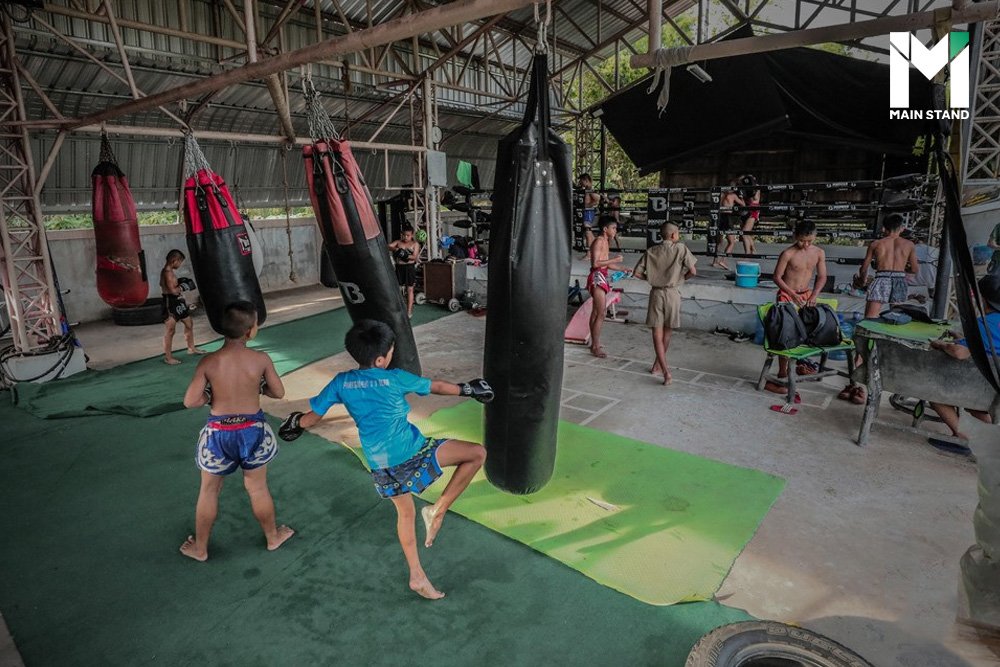
After living in Bangkok for a year, her destiny again uprooted her. When her mother-in-law fell sick, Mali and Thanit were forced to leave their fighter living in the capital behind and live as farmers in Baan Krabuang, Yang District in Nakhon Ratchasima Province.
“I moved to Korat (short for Nakhon Ratchasima), helped my family with farming, and toured to fight around the Northeast. Our family didn’t have money, so we had to do everything. Someday my mother-in-law would sell corns and watermelons that we grew, carrying baskets selling fruit around the village. Somedays we got 100 baht, somedays 200.”
“Many foreigners can’t live in the Northeast because it is the ‘boondocks,’ but I lived with my husband’s family. Squirrel or eel, I can eat anything depending on what we could find.”
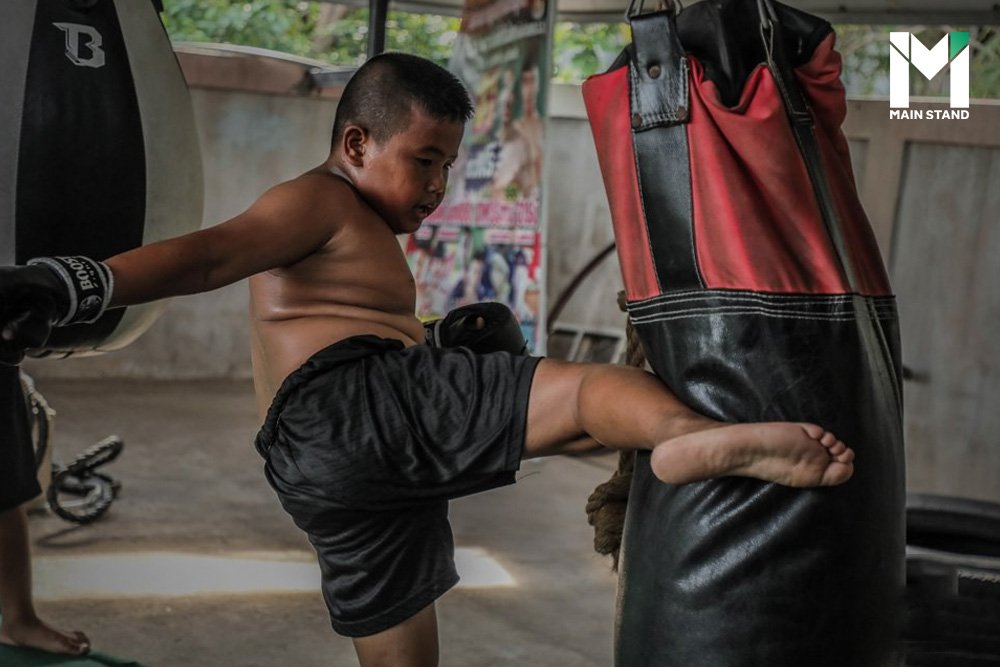
Despite her love for the country, Mali knew that her family’s lives could be better. She asked her husband to move back to Canada with her, even though it meant that they would have to give up on their Muay Thai dreams.
“I felt like I had nothing. I could still fight in the ring, but there wasn’t any Muay Thai camp to train at within my area, so I had to train by myself at home. I realized I didn’t want to live like this and thought returning to Canada might be a better way.”
Starting the Wor Wattana Camp
After they flew back to Canada, Mali decided to finish her bachelor’s degree, while her husband worked as an arborist. However, despite their hard work, they struggled to cope with the living costs in Mali’s hometown, which were very high when compared to Thailand. The tipping point came when her father-in-law’s health brought them back to Nakhon Ratchasima after four years away.
“My husband asked me to move back to Thailand because he was worried about his father. His mother had also passed away. I didn’t know what I would do in Canada at that time, so I agreed to come back. I started working as an English teacher in Phutthaisong school in Buriram province, but I didn’t like it.”
“During that time, I trained in front of my house, and the local kids saw me. Ten or so of them came up to ask if they could train with me. Without a second thought, I said yes and encouraged them to join.”
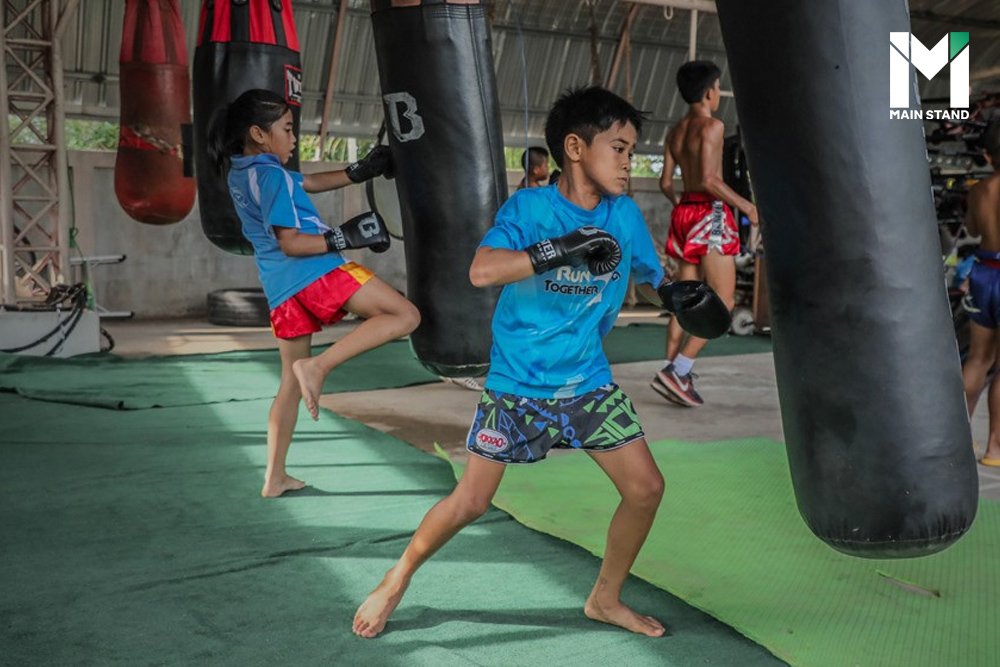
What started as a small coincidence quickly grew into something bigger. When Mali recorded a video of the children training together at her house and posted it on her social media, her friends from other countries saw that and offered to help her.
“People abroad who saw us loved it. After that, people contacted us to offer help. I was confused, help with what? The way we train was already good, but they encouraged us to build a Muay Thai camp for the kids.” Mali’s enthusiasm and excitement shone through when discussing the origins of her project.
She got started through crowd-funding, eventually raising 200,000 baht to open the Wor Wattana Muay Thai camp in front of their family’s house in the Yang District of Nakhon Ratchasima.
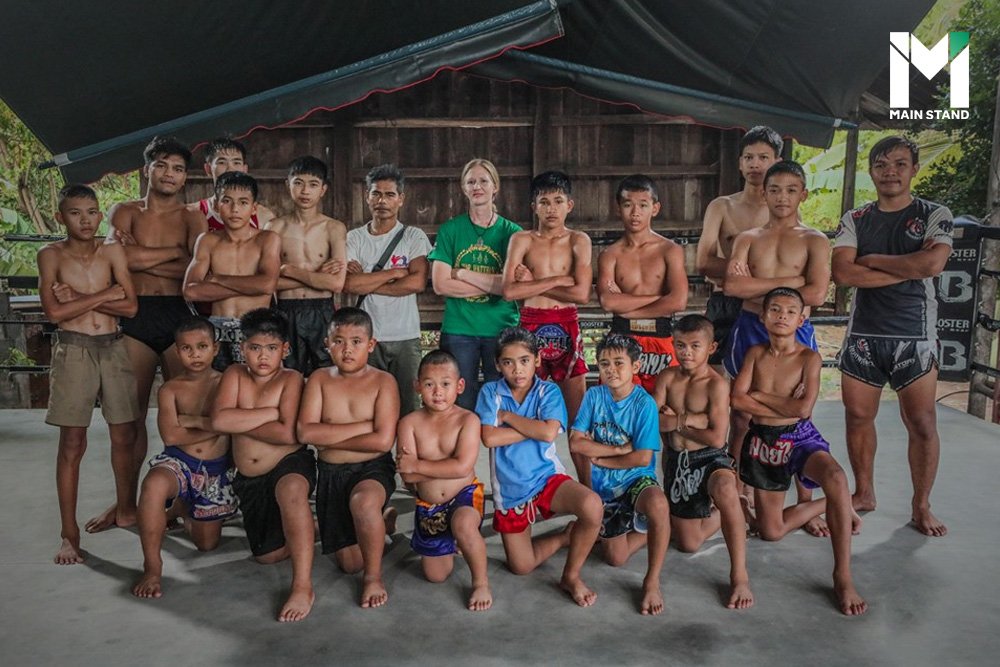
Currently, Wor Wattana has 11 young fighters. They are either from Phutthaisong district in Buriram or Yang district in Nakhon Ratchasima, on either side of the provincial border. Mali allows all children of any age and gender to train for free. She provides food for them and even takes them home from school.
“We try to provide help in every aspect. I’m renting the house next to ours so they can stay with us during school breaks. I drive them to school daily and pick them up to train. It’s like this every day.”
“I always have food for them. Our fighters eat well, we never let them go hungry. I buy only healthy food for them to eat like yogurt, Ovaltine, vitamins, and fruit. I don’t give them things like soda, green tea, or caffeine beverages”
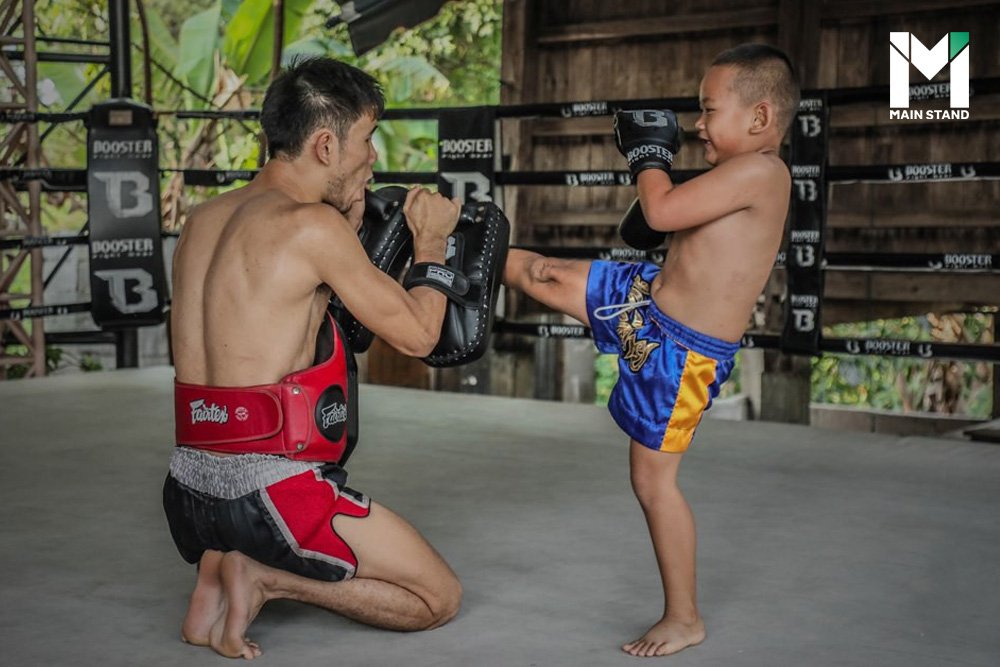
“For the kids who train with us, I’m not as serious about how good they are at fighting necessarily. Some people come here to lose weight or to exercise and don’t want to fight in the ring, which is fine. Our camp is open to everyone. I just want the kids to stay away from drugs and spend their free time on something useful. If we can achieve that, I’m already happy”
Lessons beyond boxing
Despite Mali’s laid-back attitude towards fighting, strict discipline is a fundamental part of the Wor Wattana camp’s ethos. Everyone must learn and follow the rules in order to improve themselves, both inside and outside the ring. For example, students are prohibited from using their phones during training, so they can focus on health and exercise. Beyond being a boxing camp, Mali hopes to prepare the children for their future responsibilities, such as taking care of themselves and their families in what can be an unforgiving environment in rural northeastern Thailand.
“It’s hard to make a living here. Farming gets you nothing but food to eat. Like last year, there was no water, so the paddy field was dry and we didn’t get any rice. Making money here is hard.” Mali’s voice dropped as she discussed the local conditions with concern.
“For remuneration, I don’t take a cut because we use all of it on the kids. I think it’s essential to teach them about spending smartly and saving for their family's needs. I must be strict about this because most of their families struggle financially.”
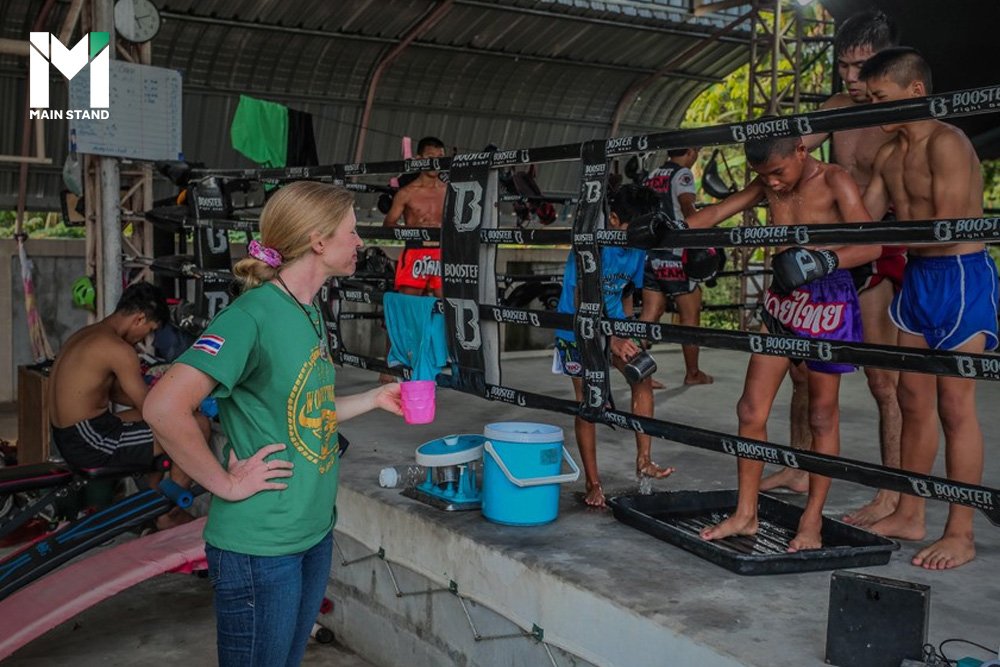
The hardship of everyday life can motivate some kids to stand up and fight. A prime example of this is the story “Laan Ya Mo,” a 15-year-old Muay Thai fighter who has become known as “Mali’s kid”. Mali shed tears of pride when discussing her student’s success in boxing.
“Laan Ya Mo had a very hard life. He didn’t live with his parents, but with his 60-year-old aunt who also took care of five other children. Everyone looked down on him and told him he wasn’t good enough for Muay Thai, and that training was not going to help him.”
From being orphaned as a kid, today Laan Ya Mo has become a successful champion in the Esan region and is preparing to audition with the Amateur Muaythai Association of Thailand to become a national youth representative.
“I saw him overcome those obstacles and make a solid living from fighting. He gave everything back to his family, buying a laundry machine for his aunt among other things. I am very proud of him because, in this environment, everything is hard.”
“When building this gym, I had to face a lot of difficulties. We did our best, but it didn’t work out for everyone and many kids ended up leaving. So when I saw Laan Ya Mo achieve his success, I felt very proud. He can become a role model for the next generation in the community.”
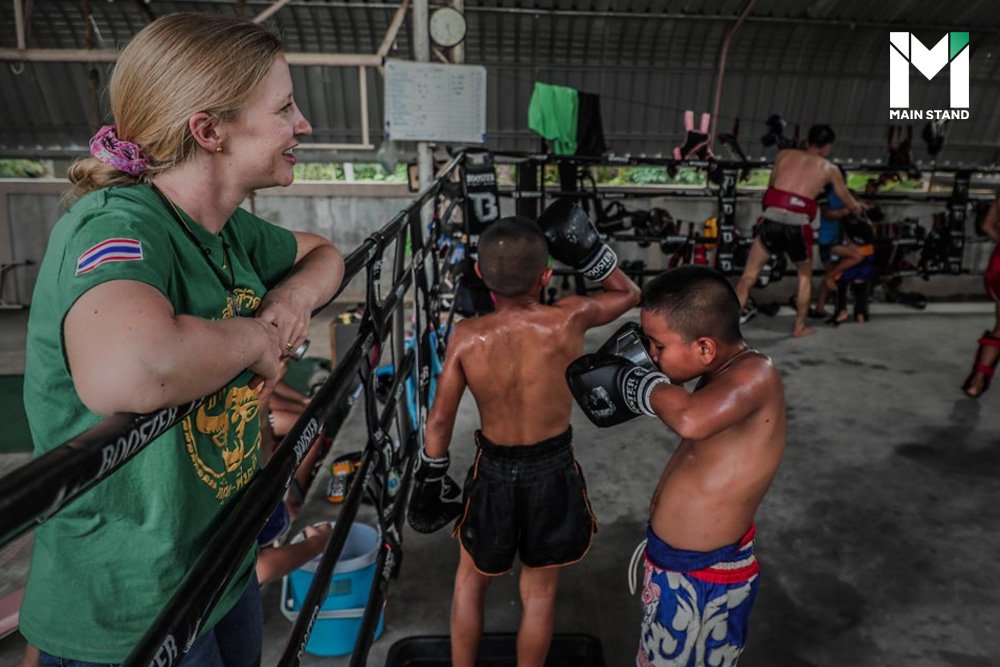
A bridge for dreams
Through the medium of Muay Thai, the Wor Wattana camp’s lessons have helped build new lives for young people in the community.
“I’m inspired by the people who have used Muay Thai to improve their lives. There’s one person who is our supporter, he used to be an alcoholic but after he learned Muay Thai, he quit drinking and fell in love with the sport. He sent his money just to help and support us.”
Every cent donated to the Wor Wattana camp is spent back in the local community, helping to make this dream come true for the local kids. Mali told us that she once received a 1000-dollar donation from Canadian primary school kids, which they earned from selling handmade bracelets at school to donate.
“I want to thank everyone for the support. I am so thankful because we don’t make enough money, without our supporters I don’t think our camp wouldn’t be here. The money that we get from them is significant. I’m so happy to see our kids strive for better lives, and I am lucky that I can continue to do this”
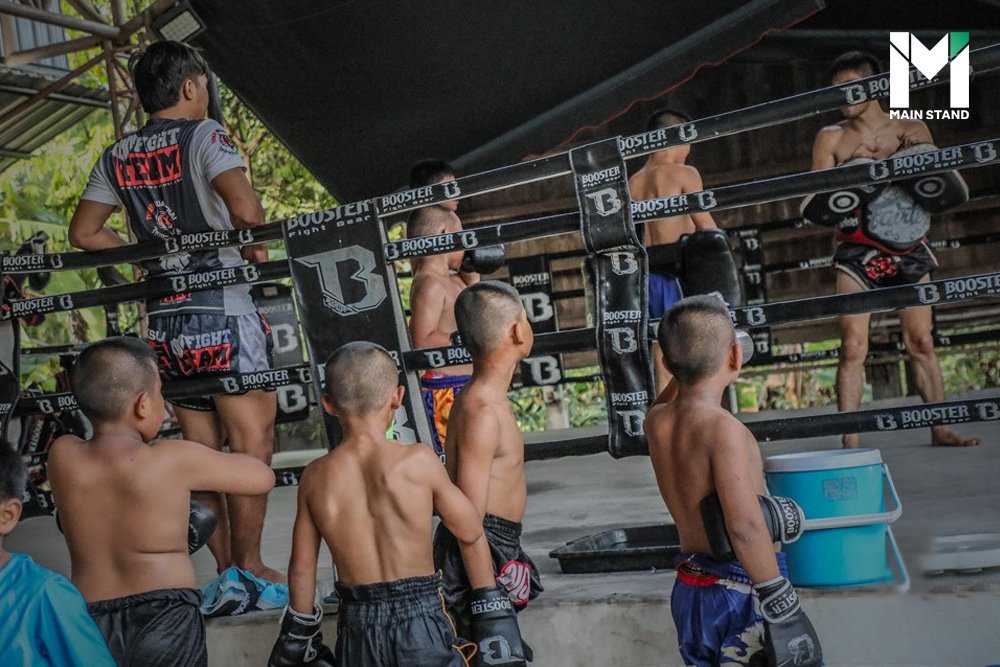
Mali’s journey is a testament to how much it takes to follow one’s dreams. Traveling to the other side of the world turned out to be the least of her obstacles. Her time in the Muay Thai arena taught Mali never to give up and inspired her to devote her life to her beloved sport and the children of her new home.
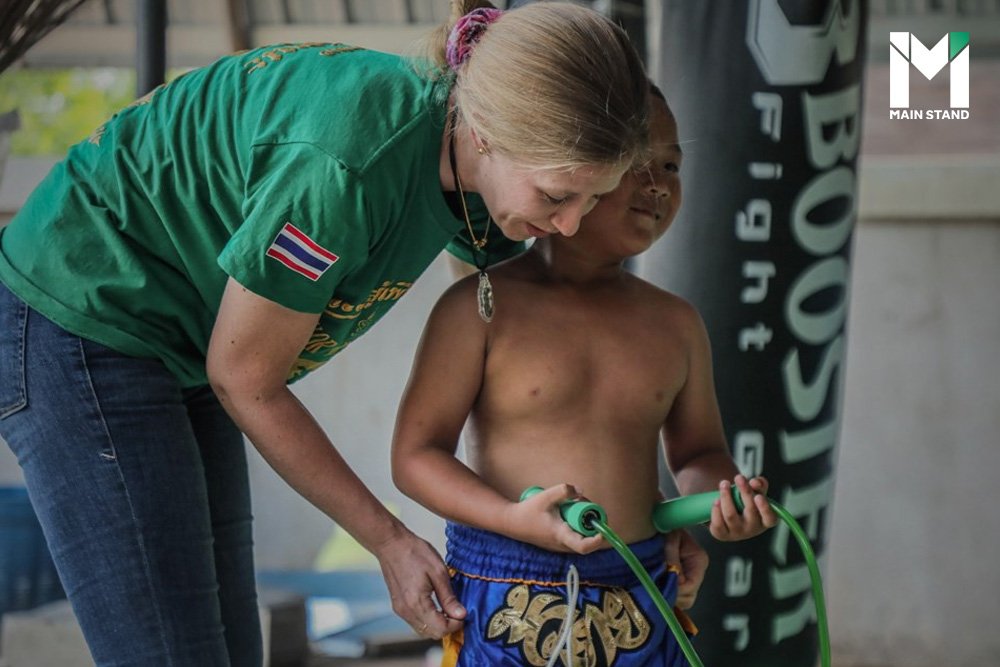
“Seeing them fight, I tell myself that I must fight too. Every time I take them to fight, I always tell them to do their best because I also do my best. We go together with the kids.”
“My husband and I are good examples for them. We don’t drink, we don’t smoke, and we practice every day.”
“I always think that I am lucky to live a life with these young people. I see myself as a bridge for them. I teach Muay Thai to help them overcome difficulties in their lives, and I am so proud that I have the chance to do this. I am so lucky that I was able to make my dreams come true”

